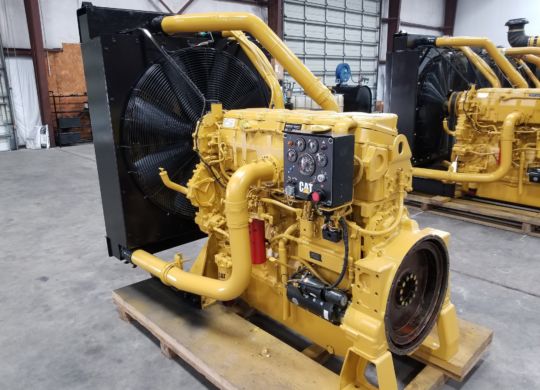There is no doubt that engines are vital to the agricultural industry today. Many aspects would be less efficient and reliable year to year if engines were not available. Engines allow faster production, more food to be grown and harvested, and superior procedures concerning countless tasks.
Farm Equipment
Farm equipment and machinery are at the heart of the agricultural industry. Tractors, planters, and combines are all powered with engines to plant and harvest crops. Balers are used to cut and harvest hay for animals. Tractors with bush hogs are used to mow grass and cut down brush and weeds on parts of the farm and in ditches next to fields.
Trucks for Transportation
Along with the farm machinery that is needed to grow and harvest crops, trucks are required to transport these products. During harvest, semi-trailers are filled from the combines with product ready to go to market. These semi-trucks then transport the product to the intended destination.
Trucks and tractor trailers are also used to transport fertilizer, herbicides and pesticides, and even water to fields to help prepare them for planting and keeping the crop healthy while it is growing. This job would be immensely harder if not for engine-powered machinery.
Agricultural Revolution
Two hundred years ago, planting and harvesting took place with horses or other livestock. Crops were often desecrated from pests or drought, as there were not effective ways to handle those situations. When the first tractor came on the scene, it was a massive machine run off steam. Bulky and inefficient, these tractors soon gave way to tractors with engines that ran on other types of fuel.
Tractors allowed the entire agricultural industry to change. The use of engine-powered tractors allowed for faster planting and harvesting, along with the ability to manage pests and water crops in the event of droughts. This allowed for more farmland to be used and more food to be produced. In addition, farms did not have to maintain teams of horses, oxen, or mules specifically for use in the fields. Efficiency and crop yields rose exponentially.
Continued Innovations For Engines
Today, farm machinery is primarily run with diesel engines. These engines are more efficient, require less maintenance, and provide more horsepower than earlier tractor and machinery prototypes. Farmers rely on their machinery, so the engines used must be top-notch and reliable. Engines for farm machinery, such as tractors, combines, and planters, are continually evolving and becoming more efficient in what they do.






